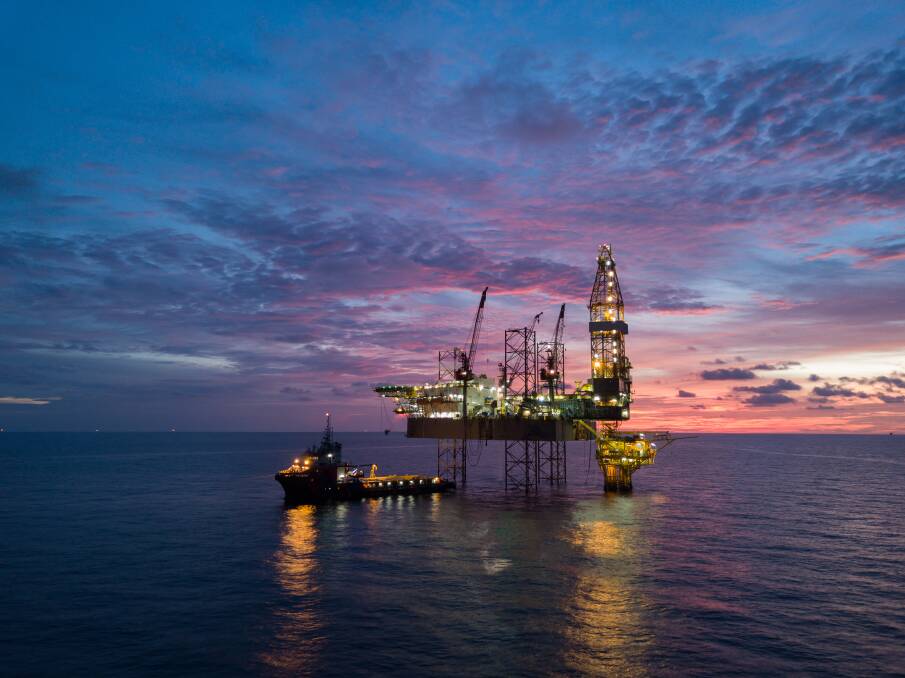Collusion between retailers, of any type or industry, is a matter for the Australian Competition and Consumer Commission (ACCC). Our economic system relies on competition to lower prices.
Collusion between oil-producing nations however, is basically their modus operandi.

According to the Organisation of the Petroleum Exporting Countries (OPEC's) English language website, their mission "is to coordinate and unify the petroleum policies of its member countries and ensure the stabilisation of oil markets in order to secure an efficient, economic and regular supply of petroleum to consumers, a steady income to producers and a fair return on capital for those investing in the petroleum industry."
OPEC was founded on September 14, 1960 by Iran, Iraq, Kuwait, Saudi Arabia, and Venezuela. Some other nations have since joined and stayed. Others still have joined and left, and in some cases more than once. At the moment there are 13 members of OPEC. There are also an additional 10 or so countries who, when it suits them, agree to cooperate with OPEC. This larger group is referred to as OPEC+ (or OPEC Plus).
Russia has, at times, been one of those nations that cooperated. But from March 2020 they were not, choosing instead to have what turned into a price war with Saudi Arabia by not limiting production as previously agreed, leading to an artificially low price for crude oil (which was also affected by other factors like a drop in demand).
Meanwhile Australia as a nation has rather complicitly benefited from these lower prices. Right up until it became obligatory to impose sanctions on Russia that might, we hope, have some effect this time.
These sanctions, posed by many nations but not all, included not buying their crude oil at least for the time being. The nations imposing those sanctions are also calling on OPEC to increase their production. However, there appears to be no real incentive or reason for them to ramp up production just to make fuels more affordable for the average westerner. Think about it. Why should they?
We in Australia have no grounds to complain internationally either. It's not like Australia hasn't capitalised on the price of steel or coal or any other commodity our nation exports. That's OK though. What was not OK was screwing East Timor out of billions of dollars over the course of decades by claiming more of the Timor Sea's oil and gas than we had any right to, and at a time when they were the poorest nation in Asia. So we really have no moral grounds to criticise what price other nations want to charge us for their oil, in any circumstances.
Meanwhile retailers, in every industry, will charge whatever they can for products and services, and if there's less volume of something available than there is demand, then they will be able to increase prices as they see fit, no collusion necessary.
As for what we as a nation could be doing about the supply of energy to vehicles there are multiple options available to us in the short and long term, and as I wrote fairly recently I believe we should embrace them all.
Everyone who can go electric should consider it. But the supply of electric vehicles, although varied in type, is slow with wait times for some models counted in years.
Hydrogen is a good option for the heavy freight industry, but there's much infrastructure to be built before that can be supplied to them as a green source.
At some price point though, biofuels (ethanol to replace petrol, and vegetable or other organic oils to replace diesel), must surely become economically viable, because that is supposedly the only reason they haven't been incorporated into the mix anywhere near as much as they could have.
After rolling out ethanol in the early 2010s it was basically phased out from 2015. And Aussie biodiesel plants have been closed because they just couldn't make money with low crude oil prices and no government intervention to mandate a meaningful percentage of biofuels in the national mix.
Now though, maybe it's worth thinking much more seriously about legislative mandates that would assure the commercial viability of domestic biofuel production for as long as combustion engines are needed.

